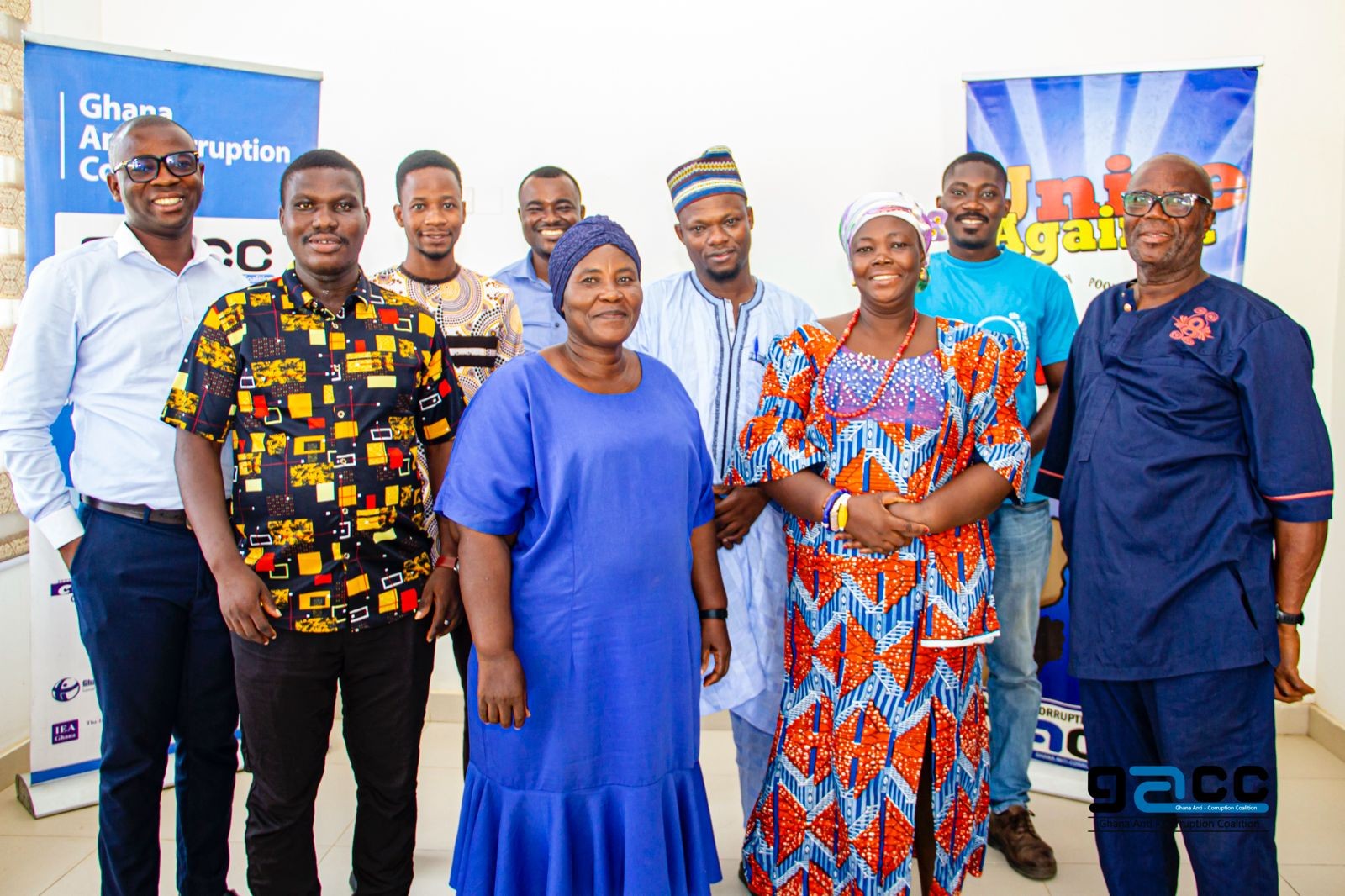As part of ongoing efforts to enhance grassroots accountability and transparency in local governance, the Ghana Anti-Corruption Coalition (GACC), in collaboration with the Africa Centre for Energy Policy (ACEP) and Transparency International Ghana, has trained Local Accountability Networks (LANets) from ten districts to oversee the implementation of audit recommendations issued by the Auditor-General.
This capacity-building initiative is part of the broader project titled “An Anti-Corruption Initiative for Enhancing Governance and Accountability”, with funding support from the Foreign, Commonwealth, and Development Office (FCDO).
The project aims to empower citizen groups to play a more active role in demanding accountability and strengthening civic oversight of public resource management.
In the first round of training, LANets from Nzema East, STMA, Asante Akim North, and Tamale Metro were equipped to follow up on the implementation of audit recommendations issued by the Auditor-General.

The second round has now brought on board LANETs from Assin Fosu, Ada East District, Ho Municipal, Suhum Municipal, Sagnarigu Municipal, and Techiman Municipality, completing the target of ten districts under the project.
Audit reports by the Auditor-General consistently reveal financial irregularities, weak internal controls, and mismanagement of public funds at the local government level. However, implementation of audit recommendations remains low, undermining accountability and eroding public trust.
To address this gap, the LANets, comprising community-based citizen groups, were trained to demystify the Auditor-General’s reports, use tracking tools, and engage constructively with duty bearers to ensure recommendations are implemented at the district level.

“We want citizen voices to be louder and more informed when it comes to accountability. This training is about shifting citizens from passive observers to active monitors of how public funds are managed,” said Dorcas Affum Tenkorang, Assistant Programmes Officer at GACC.
Participants expressed appreciation for the opportunity to build their capacity and contribute to community development.
“Before this training, audit reports felt too technical and distant. Now, I understand how to read them and how to follow up with my District Assembly. I feel empowered to ask the right questions,” said David Dankwah Yeboah, a LANet member from Techiman.
By equipping LANETs with the right skills and knowledge, the project aims to foster a stronger culture of transparency, improve service delivery, and ensure public funds are used for their intended purposes. It is a crucial step toward deepening participatory governance and restoring confidence in public institutions at the local level.
Share Us



